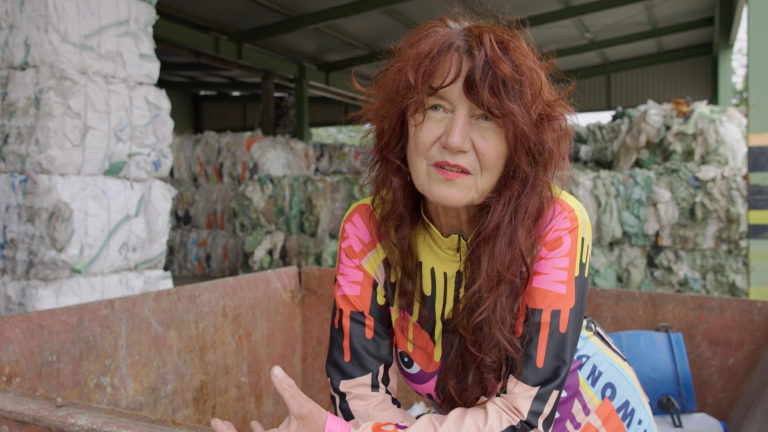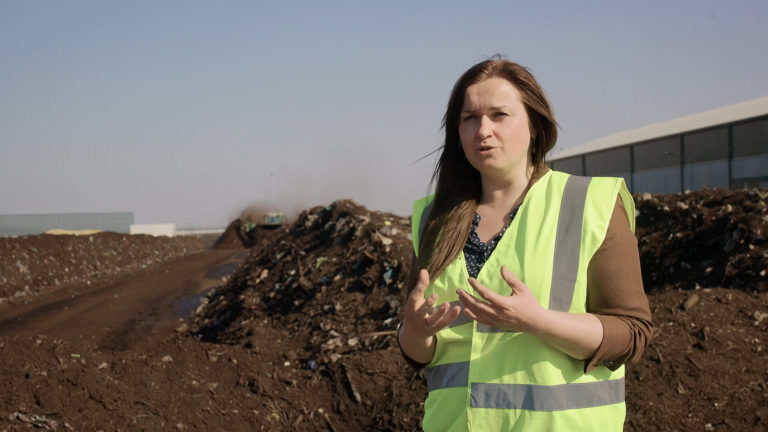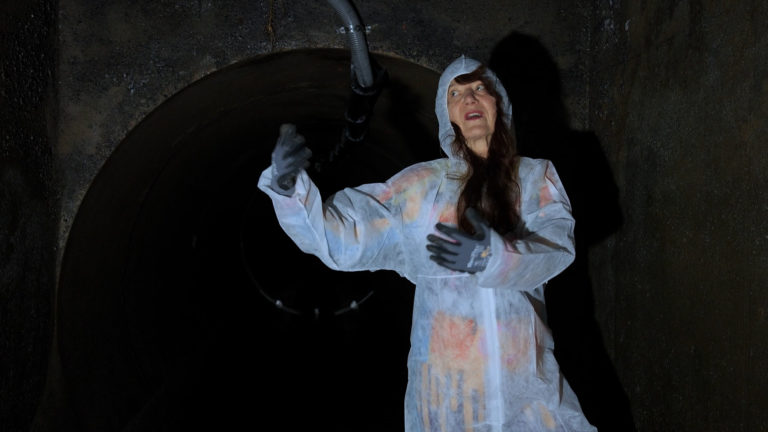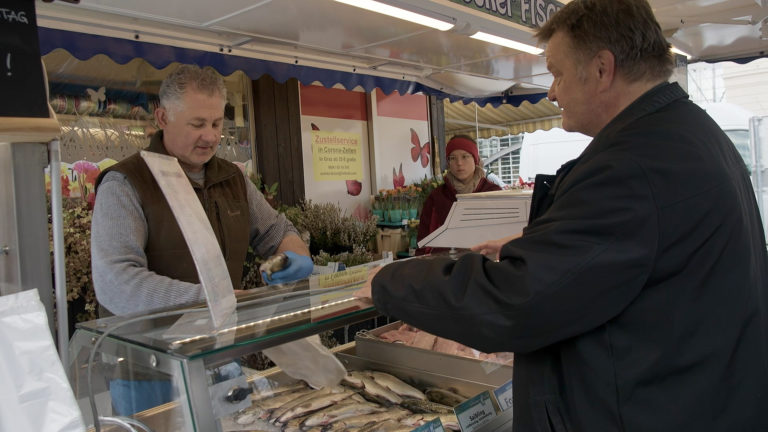GET RID OF IT
The Art of Disposal
a film by Karin Berghammer
TV-Documentary | 60 min | AT | 2022
PREMIERE on 02.10.2022 at 11:05 pm on ORF2
SYNOPSIS
WASTE, according to philosopher and artist Elisabeth von Samsonow, is both the excrement of society and a matter of perception. What we get rid of, what we don't want to see anymore, we call waste and make a proper effort in trying to make it disappear.
In Karin Berghammer's new documentary, the innovative thinker goes to the places where the discarded is collected, loaded with excavators and grapple claws, moved, sorted by hand or, fortunately, salvaged and given a new purpose. She climbs into the sewage system in Gössendorf, Styria, enjoys the busy work of the bacteria in the sewage treatment plant there, admires a mountain of aluminum cans glistening in the sun in Krems, or talks to employees of Caritas in Graz about salvaged furniture. She always lets us in on her thoughts, which alternate between practical everyday considerations and highly philosophical reflections. Whether she draws parallels to the story of creation on the basis of the whitecaps in the sewage treatment plant, talks to the employees of the transfer station about the flourishing business prospects of waste management, or makes herself common with trash while standing in a dumpster: Her reflections are as profound as they are humorous, prompting us to think and see the familiar in a new way.
Similarly philosophical are the insights of Bernhard Bogner, plant manager of the Dürnrohr waste incineration plant. Laughing, he tells us that looking into the trash can reveals the most intimate things about people. In the Upper Mürz Valley, a camera mounted in the garbage collection truck performs this task and documents the contents of each individual garbage can. The "Smart Waste" pilot project for detecting misdirected waste then forwards the images to a computer in the municipal office, which uses artificial intelligence to identify the recyclables they contain. Data protection is a top priority, says the mayor of the municipality.
Plastic with its high combustion value is a sought-after resource in waste incineration, but it causes problems in organic waste. To what extent becomes evident in the images from the huge "Erdenreich" composting plant in Langenlois, Lower Austria: Silvia Seizer, who is responsible for quality control of the precious material, shows us the effort that goes into getting rid of all the plastic residues.
Plastic is also a particular thorn in the side of Berthold Schleich, managing director of ARGE Abfallvermeidung. That's why he only uses one plastic bag when buying groceries at the Kaiser Josef Markt in Graz. And this is solely because he has not yet found a suitable container for transporting fish. He, who together with his colleagues has been educating people and proposing alternatives for 40 years, has long since come to the conclusion that individual efforts alone will not suffice. It would be time for politics to take the necessary steps. Even against the resistance of various lobbies, which - according to Schleich - ultimately also include the waste industry. Because if there were no waste, there would be nothing to manage.








WATCH HERE
ONLINE (leihen & kaufen):
PRESS
IJK presse + marketing
Ines Kratzmüller
+43 699 12 64 13 47
ines@kratzmueller.com
www.ijk-presse.com
CREW
DIRECTED BY
Karin Berghammer
SCRIPT & PRODUCTION MANAGER
Barbara Eppensteiner
DOP
Krisztina Kerekes
SOUND & AUDIO EDITING
Gerd Jochum
SOUND VIENNA
Teresa Schwind
EDITOR
Julia Eder
CONSULTING EDITOR
Cordula Werner, aea
MUSIC
Christof Dienz
SOUND MIXING
Christofer Frank
COLOR GRADING
Johannes Püller
TITLE DESIGN & GRAPHIC ARTIST
Ally Schober
PRODUCTION ASSISTANT & ASSISTANT EDITOR
Franziska Teresa Aringer
BEST BOY
Oliver Hasenzagl
PRODUCTION
IN COPRODUCTION WITH
Karin Berghammer | berg hammer film

ORF






